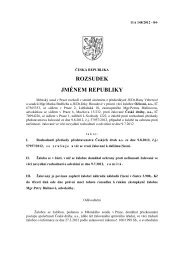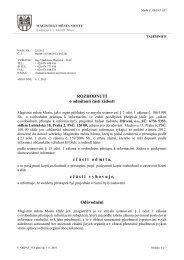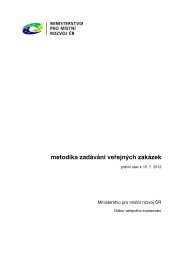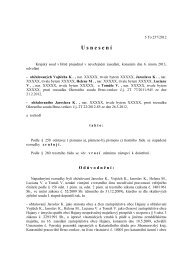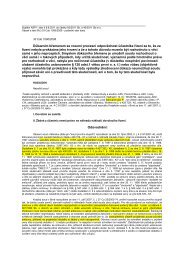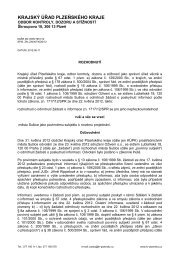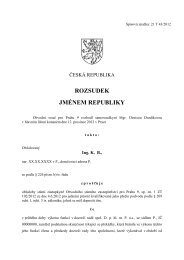Managing Conflict of Interest - Organisation for Economic Co ...
Managing Conflict of Interest - Organisation for Economic Co ...
Managing Conflict of Interest - Organisation for Economic Co ...
Create successful ePaper yourself
Turn your PDF publications into a flip-book with our unique Google optimized e-Paper software.
<strong><strong>Co</strong>nflict</strong> <strong>of</strong> interest: A historical andcomparative perspectiveSir Tim LankesterPresident, <strong>Co</strong>rpus Christi <strong>Co</strong>llege, Ox<strong>for</strong>d University, United KingdomIntroduction<strong><strong>Co</strong>nflict</strong> <strong>of</strong> interest among political leaders and public <strong>of</strong>ficials,as we understand it today, has existed as long as there has beenpublic administration. 1 In most premodern societies, the very concept<strong>of</strong> conflict <strong>of</strong> interest would not have been recognized. Therewere a few societies, such as Sasanian Iran and early Tang China,where public <strong>of</strong>ficials were expected to administer purely in theinterests <strong>of</strong> the state or <strong>of</strong> the supreme ruler. Whether they did sois another matter. But in most societies, whether it was 17th centuryEngland or 18th century Java, it was automatically assumed thatpolitical leaders and <strong>of</strong>ficials would take advantage <strong>of</strong> public <strong>of</strong>ficeto advance their own personal interests.It is really only since the advent <strong>of</strong> the modern industrializingstate that the notion has taken hold that public <strong>of</strong>ficials and theirpolitical masters should be expected to act exclusively in the interests<strong>of</strong> the state. States with large military ambitions, such as Englandin the 18th century and Bismarck’s and Hitler’s Germany, needed anefficient and relatively incorrupt civil service if their ambitions wereto be fulfilled. The Soviet Union needed <strong>of</strong>ficials who were dedicatedwholly to the social and economic trans<strong>for</strong>mation envisagedby Lenin and Stalin. When countries in Western Europe and elsewheredemocratized and their governments became accountableto their publics, the people as “sovereign” began to insist via theballot box that politicians and <strong>of</strong>ficials should act in the public, asopposed to their own personal, interest.In most countries, expectations as to the proper duties <strong>of</strong>politicians and <strong>of</strong>ficials have changed over time in the direction<strong>of</strong> greater transparency and clearer division between their public1This paper deals only with conflict <strong>of</strong> interest in respect <strong>of</strong> politicians and nonelected<strong>of</strong>ficials. It does not address conflict <strong>of</strong> interest in the private sector.ADB/OECD Anti-<strong>Co</strong>rruption Initiative <strong>for</strong> Asia and the Pacific







